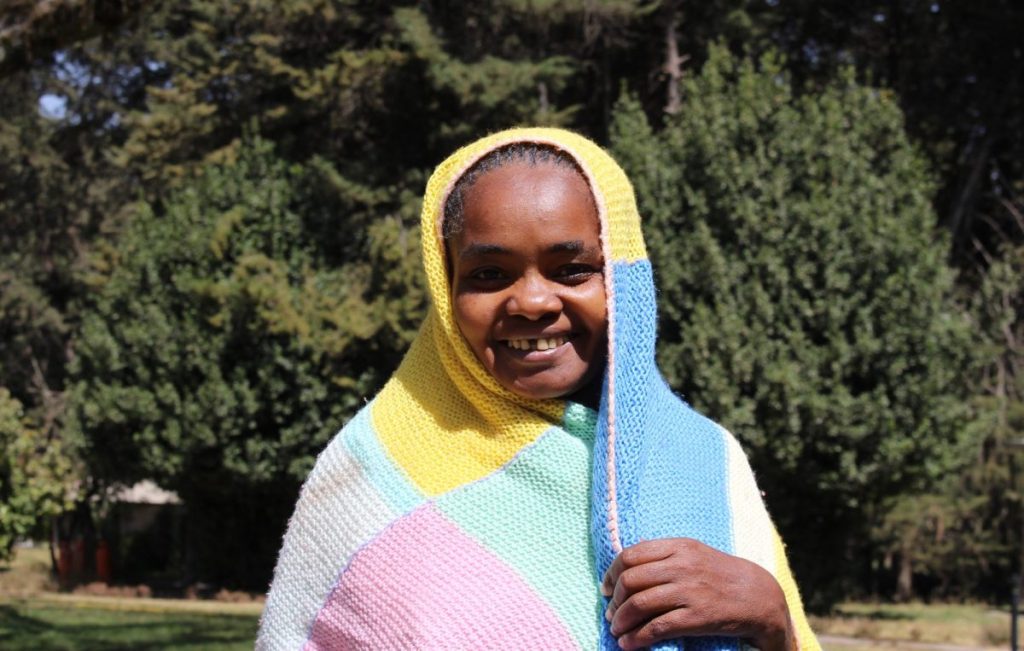Five days.
For five perilous days, Almaz endured an obstructed labor in her small Ethiopian village without a midwife. Without appropriate medical care, Almaz’s condition seriously deteriorated, and led to her suffering an obstetric fistula injury. The devastating impact of those five days without a midwife would be felt for ten long years.
A life upended by fistula
Born and raised in an isolated rural village in southern Ethiopia, Almaz grew up without access to basic necessities – including medical care and transport. Soon after getting married, Almaz was overjoyed to learn that she was pregnant. Like the rest of the women in her village, Almaz was unable to visit a midwife for prenatal check-ups during her pregnancy. Accessing the nearest healthcare clinic, a full day’s walk away, was unthinkable for a heavily pregnant Almaz. Like over 70% of women in Ethiopia, Almaz’s only option was to deliver her baby at home, without a midwife or any medical professional by her side.
For five endless days, Almaz suffered in obstructed labor. On the sixth day of her complicated labor, Almaz was taken to the closest hospital. At the hospital, Almaz’s baby was heartbreakingly stillborn. Her devastation was compounded when she realized that she was incontinent.
Almaz returned to her brother’s home, alone and inconsolable. “I had no support: I lost my family, and my brother was a poor farmer. I didn’t have the money to search for better treatment. I kept myself inside a small hut and would spend the day crying,” Almaz recalls. She would stay in that hut, incontinent, for a decade.
Almaz’s renewed hope
Depressed and ostracized, fistula was Almaz’s reality for ten slow years. Alone in that hut, Almaz came to believe it was her fate to suffer from fistula.
Earlier this year, Almaz’s life was renewed. Health officers found Almaz and she was brought to her closest Hamlin fistula hospital, in Metu. The difficulty of her case required Almaz to be transferred to the global center of excellence in fistula repair, Hamlin’s Addis Ababa Fistula Hospital. During her five-month stay at Hamlin, Almaz received holistic care and underwent surgery.

Today, Almaz is completely dry.
In addition to her treatment, Almaz stayed at Desta Mender, Hamlin’s Rehabilitation and Reintegration Center, where she was able to recover from her trauma physically and emotionally. The vocational training Almaz received at Desta Mender has equipped her to build a better future for herself back in her village. In her local language, Almaz’s name means ‘diamond.’ Healthy, hopeful, and dry, Almaz can now see a future befitting her beautiful name.
“My being cured is still a surprise. I never though it possible until it actually happened. Thank you for making this happen and for letting me be a woman again,” Almaz exclaims.
Together, we have the power to put an end to the needless suffering that fistula patients endure. Click here to help provide holistic fistula treatment for more women like Almaz.